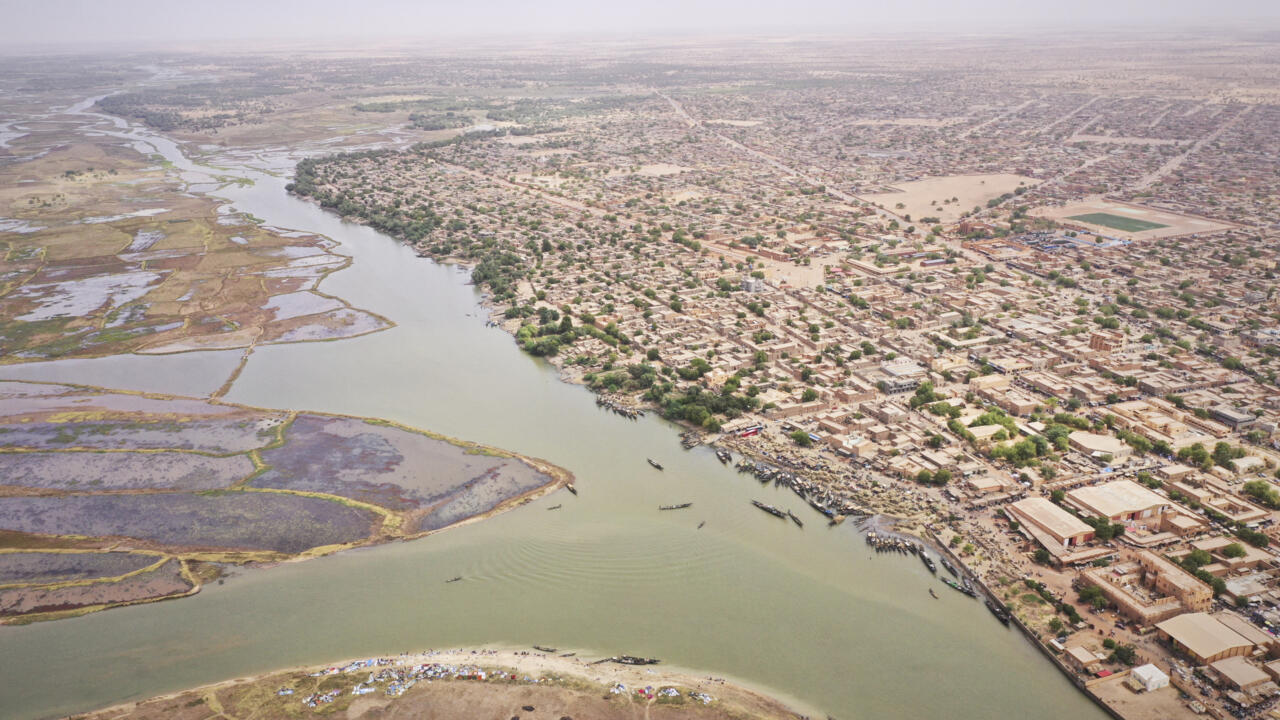Jnim announces series of blockades in northern Mali
The JNIM announces a series of blockades in northern Mali. While the pace of fighting has intensified between the armed groups in the north signatories of the 2015 peace agreement and Malian forces, and the army initiated on Monday an imposing movement of troops towards the stronghold of the CSP (Permanent Strategic Framework) rebels in Kidal, jihadist groups are taking advantage of the situation to step up their action. The al-Qaeda-linked Group for the Support of Islam and Muslims intends to tighten its grip on the northern Malian cities of Gao, Menaka and Timbuktu.
[Illustrative image] An aerial view taken on March 10, 2020 shows the Niger River near the city of Gao in northern Mali. AFP - MICHELE CATTANI
By: David Baché
Advertising
Read more
Written communiqués, for Timbuktu and Gao, audio messages, for Menaka: broadcast since last Friday by the JNIM, on different channels, these documents have been authenticated by researchers specialized in monitoring jihadist activities and by Malian security sources directly involved.
After recently assuring local mediators that the blockade already imposed on Timbuktu since early August would be gradually lifted, the JNIM reverses its face and categorically denies any relief. Is it a question of maintaining the pressure while waiting for a definitive lifting? A strategic shift consistent with the decision to impose other blockades in northern Mali?
In Gao, the first city in the north, the jihadists announce that they want to prevent the delivery of fuel. The locality of Al Moustarat, more than a hundred kilometers north of Gao, is cited as the last authorized supply point.
Finally, in Menaka, the Jnim cannot claim to impose much, after being ousted from the region by its rival Islamic State, but the group linked to al-Qaeda intends to establish its embargo on the Algeria-Kidal-Menaka axis. An embargo that concerns fuel but also food products.
Each time, the official target is the Malian army, which includes its Russian auxiliaries from the Wagner Group or local armed groups allied with it. But civilian populations, if they themselves were to be deprived of fuel or other consumer products, would obviously not be spared.
NewsletterReceive all the international news directly in your mailbox
I subscribe
Follow all the international news by downloading the RFI application
Share:
Read on on the same topics:
- Mali

